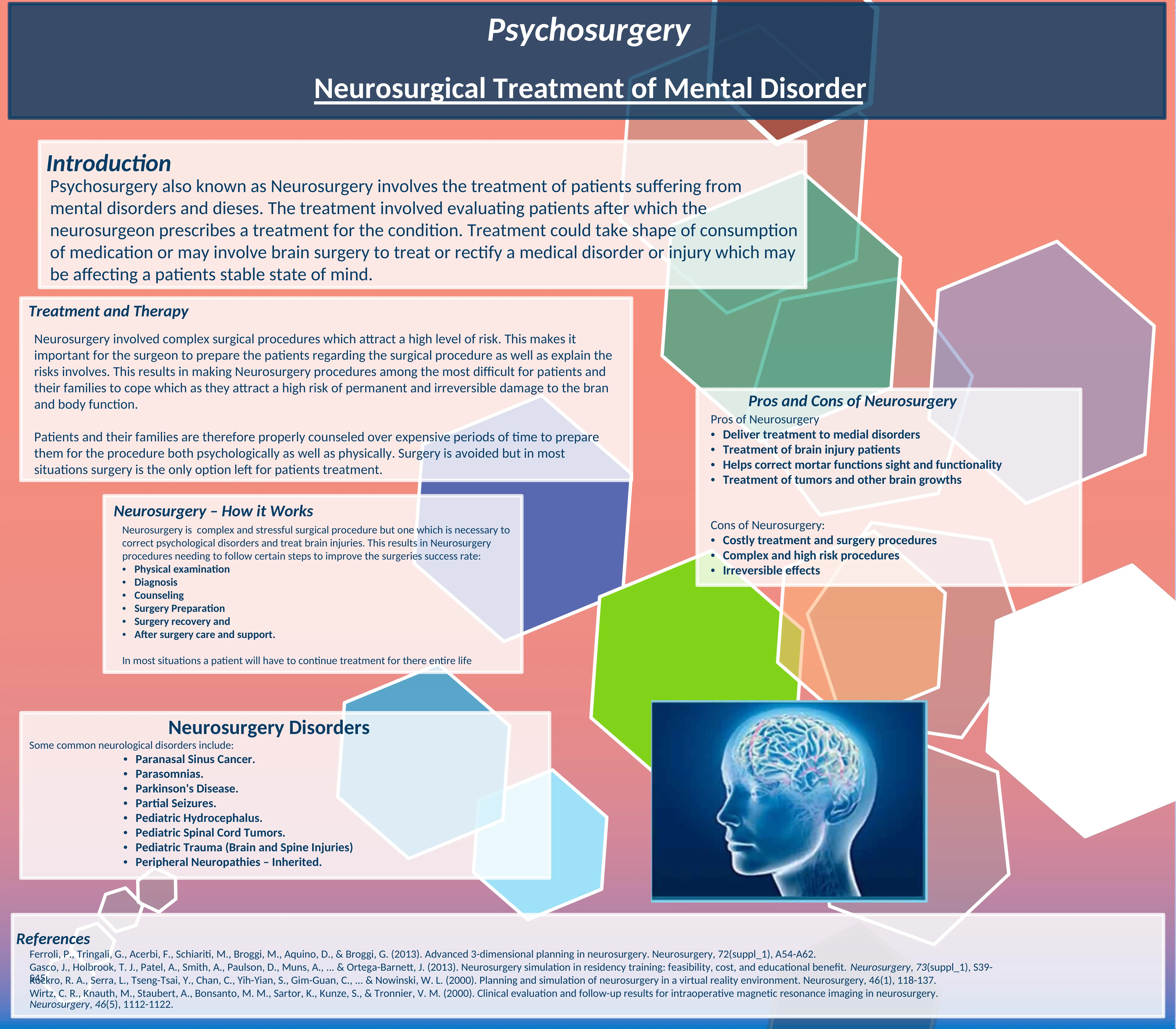Psychosurgery - Neurosurgical Treatment of Mental Disorder
VerifiedAdded on 2023/06/15
|1
|592
|135
AI Summary
Psychosurgery, also known as Neurosurgery, involves the treatment of patients suffering from mental disorders and diseases. The treatment could take the shape of medication or brain surgery. Neurosurgery is complex and stressful, but it is necessary to correct psychological disorders and treat brain injuries. The procedure involves physical examination, diagnosis, counseling, surgery preparation, surgery recovery, and after-surgery care and support. The pros of Neurosurgery include delivering treatment to medical disorders, treating brain injury patients, and helping correct motor functions, sight, and functionality. The cons of Neurosurgery include costly treatment and surgery procedures, complex and high-risk procedures, and irreversible effects. Some common neurological disorders include Paranasal Sinus Cancer, Parasomnias, Parkinson's Disease, Partial Seizures, Pediatric Hydrocephalus, Pediatric Spinal Cord Tumors, Pediatric Trauma (Brain and Spine Injuries), and Peripheral Neuropathies – Inherited.
Contribute Materials
Your contribution can guide someone’s learning journey. Share your
documents today.
1 out of 1

![[object Object]](/_next/static/media/star-bottom.7253800d.svg)